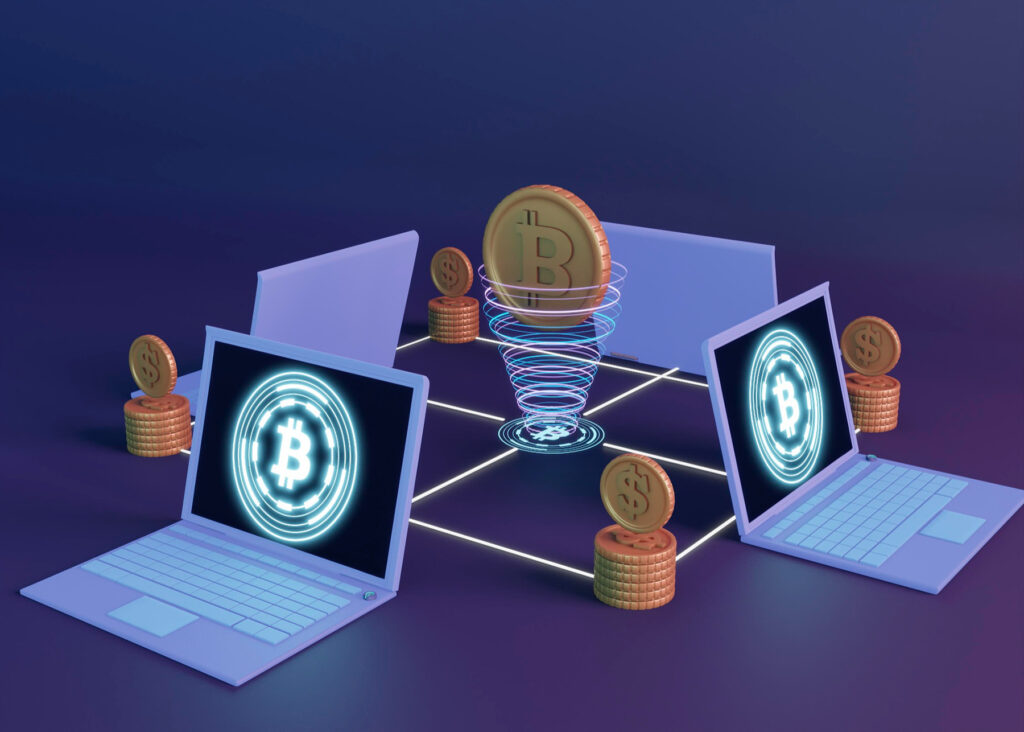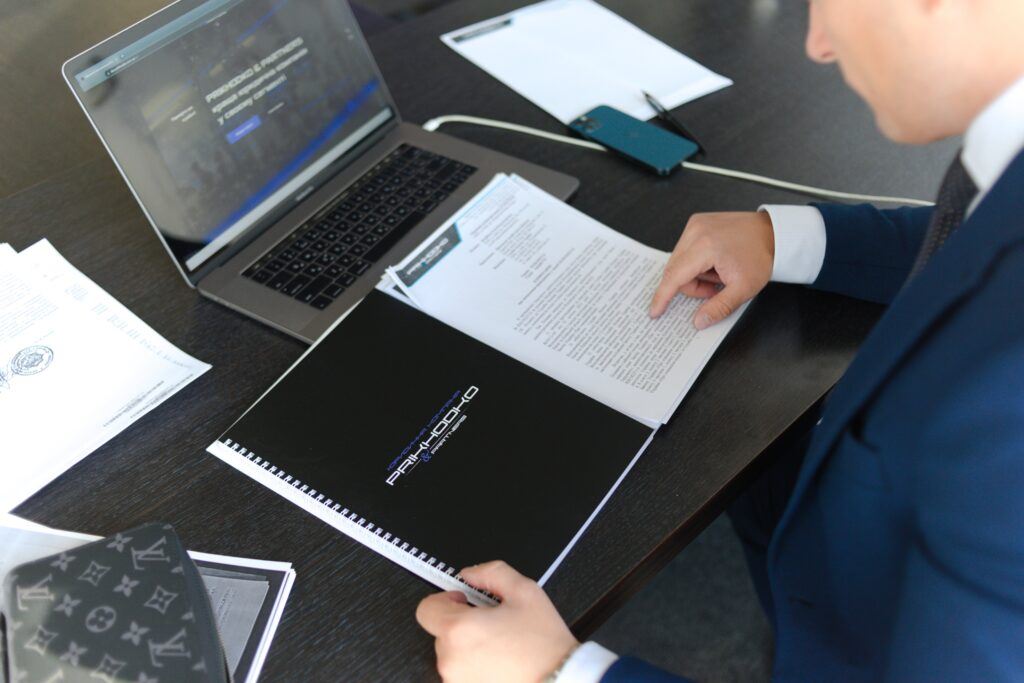
"We value our customers and realize that time is the most valuable resource that we help them save."
Head of International Corporate Law and Fintech Practice
A specialist in the practice of migration and corporate law, he also specializes in legal support for business in EU countries.
Peculiarities of concluding SAFE and SAFT contracts
Contact a specialist
+38 (073) 007-44-36SAFE (Simple Agreement for Future Equity) and SAFT (Simple Agreement for Future Tokens) are two common tools used by startups to attract investment in the cryptocurrency and blockchain fields. Both forms have their own characteristics and can be useful in different contexts.

SAFE
A SAFE (Simple Agreement for Future Equity) is a type of investment contract commonly used to raise funds in the early stages of startup development.
The main features of SAFE are that it does not allow the investor to receive shares immediately, but represents a promise of future capital in the company. Investors provide money to a startup in exchange for the right to convert their investment into equity at a later stage, usually upon the occurrence of a certain event (triggering event).
The moment of conversion of a SAFE usually occurs at the closing of the next round of financing (for example, a Series-A round), the sale of the company or another predetermined milestone.
SAFEs may include a maximum valuation limit and a discount to provide early investors with favorable terms when converting their investment into equity. The valuation cap ensures that early investors don’t overpay for their shares, while the discount offers them a lower price per share compared to the price paid by later investors.
The conversion mechanism provides the investor with more shares.
SAFEs do not accrue interest and usually have no maturity date, meaning they usually do not need to be repaid unless a triggering event occurs.
This contract is considered riskier for investors than traditional equity investments because they lack certain rights and protections that normally accompany stock ownership. In the event of a startup failure, the rights of SAFE holders are generally secondary and more limited than those of preferred stock holders.
SAFT
SAFT is designed to simplify the capital raising process and create a framework for blockchain-based startups to raise funding prior to token issuance.
If a blockchain startup knows that their technology requires tokens to function, they can raise venture capital by selling investors a share of the tokens that will be available in the future.
In this way, the company and developers can use the funds from future token sales to develop the network or technology necessary to create the product and the token, and then deliver those tokens to investors who are waiting for a liquid market where they can sell those tokens if they want.
The main idea behind SAFT is that investors are entitled to future tokens that the company will issue after the development of the product or blockchain network is complete. Initially, investors purchase SAFT, which is the company’s commitment to provide them with tokens in the future, and when the development is complete and the tokens are issued, the company exchanges the SAFT for real tokens.
SAFT contracts were created to circumvent regulatory restrictions associated with conducting ICOs (Initial Coin Offerings) that may be subject to securities laws. SAFT enables companies to raise investment by giving investors the right to future tokens instead of directly offering the tokens themselves.
The main features of SAFT are that blockchain companies in need of investment raise funds from venture capitalists, but investors do not buy shares, but company tokens.
SAFT is contracted with accredited investors who must undergo KYC (Know Your Customer) and AML (Anti-Money Laundering) checks, as raising funds through SAFT may be considered an offer of securities in certain jurisdictions and is subject to regulatory oversight.
Similar to SAFE, SAFT includes a “triggering event” to convert an investment into tokens, which is usually based on the launch of a token contract and the generation of tokens during a Token Generation Event.
Investors often receive special token distribution conditions, which include cliff (postponement of issuance) and vesting (gradual distribution).
It is a common practice to include in the SAFT a term that determines the date for the TGE (TGE deadline), which can lead to premature launch of tokens in some cases.
SAFT carries risks for investors because it represents a promise of future value and the success of a blockchain project is not guaranteed. In addition, SAFT only gives the investor a share of future tokens, and if the blockchain project changes its product and no longer needs tokens to function, the SAFT investor has no rights to a share in the company.
Mechanisms to be regulated in SAFE/SAFT:
- Discounts –discount on the purchase of shares/tokens
- Valuation cap –setting the assessment limit;
- Most favored nation provisions –if the new SAFE/SAFT agreement provides for more attractive terms, the owner of the earlier SAFE/SAFT has the right to demand equal terms;
- Pro Rata Rights –the right to invest additional funds in each of the rounds.
SAFE or SAFT
Both agreements, SAFE and SAFT, play an important role in the fundraising process for cryptocurrency and blockchain startups. They provide legal and financial mechanisms to attract investment, but have different goals and characteristics.
The choice between SAFT and SAFE depends on the specific needs and goals of the startup:
- Legal Structure: A SAFT is an offering of securities and is subject to securities laws and regulations, while a SAFE is not a security and is not subject to the same laws and regulations.
- SAFT is more suitable for blockchain startups seeking funds through ICOs because it follows the structure of token issuance and blockchain projects.
- SAFE is more suited to startups seeking funding through seed or early stage funding rounds and seeking an easy way to raise capital without immediately issuing equity.

The Prikhodko and Partners team will help you choose the optimal type of contract, taking into account all legal requirements and individual wishes.
We will provide comprehensive support at every stage of concluding a contract, guaranteeing the protection of your interests and compliance with all legal regulations.
Calculate the cost of services
1 question
Do you need help choosing between SAFE and SAFT?
2 question
Do you need help developing a business plan?
3 question
Do you need advice on legal requirements and individual wishes?

A specialist in the practice of migration and corporate law, he also specializes in legal support for business in EU countries.
TOP lawyers dealing with such cases in Ukraine
How to order the service? How do we work?
If you need to open a bank account in a foreign bank, or you need to register a company in a foreign country or a legal service for your business abroad, fill out an application on the website, or call for the specified phone numbers.
- Application
- Calling a lawyer
and defining tasks - Contract and payment
- Consultation,
case analysis, specialist work
What is the price for a lawyer's consultation and assistance?
Price for services in the "International corporate law" category:
| The name of the service | Price, UAH | Terms |
|---|---|---|
| Tax consultation in Europe | from $200 | from 1-2 days |
| Opening an account in a foreign bank | from $250 | from 3 days |
| Liquidation of a company (firm) in Europe | from $1000 | from 7 days |
| REGISTRATION OF BUSINESS IN EU COUNTRIES | from $1000 | from 7 days |
| Sale of ready-made companies | from $1000 | from 3 days |
You may also need:
Intellectual property
Brand name registration
Read moreBusiness scaling and migration
REGISTRATION OF A BUSINESS (FIRM) IN THE CZECH REPUBLIC
Read moreBusiness scaling and migration
OPENING A BANK ACCOUNT IN ESTONIA
Read moreBusiness scaling and migration
REGISTRATION OF A BUSINESS (FIRM) IN AUSTRIA
Read moreCorporate law
Opening an account in a foreign bank
Read moreBusiness scaling and migration
REGISTRATION OF A BUSINESS (FIRM) IN POLAND
Read moreBusiness scaling and migration
REGISTRATION OF A BUSINESS (FIRM) IN THE UK
Read moreBusiness scaling and migration
OPENING A BANK ACCOUNT IN AUSTRIA
Read moreBusiness scaling and migration
OPENING A BANK ACCOUNT IN GREAT BRITAIN
Read moreFintech
BANK REGISTRATION IN CYPRUS
Read moreBusiness scaling and migration
OPENING A BANK ACCOUNT IN GERMANY
Read moreFintech
OPENING A BANK ACCOUNT FOR A GAMBLING BUSINESS
Read moreArticles on the topic:
call back
during the day











